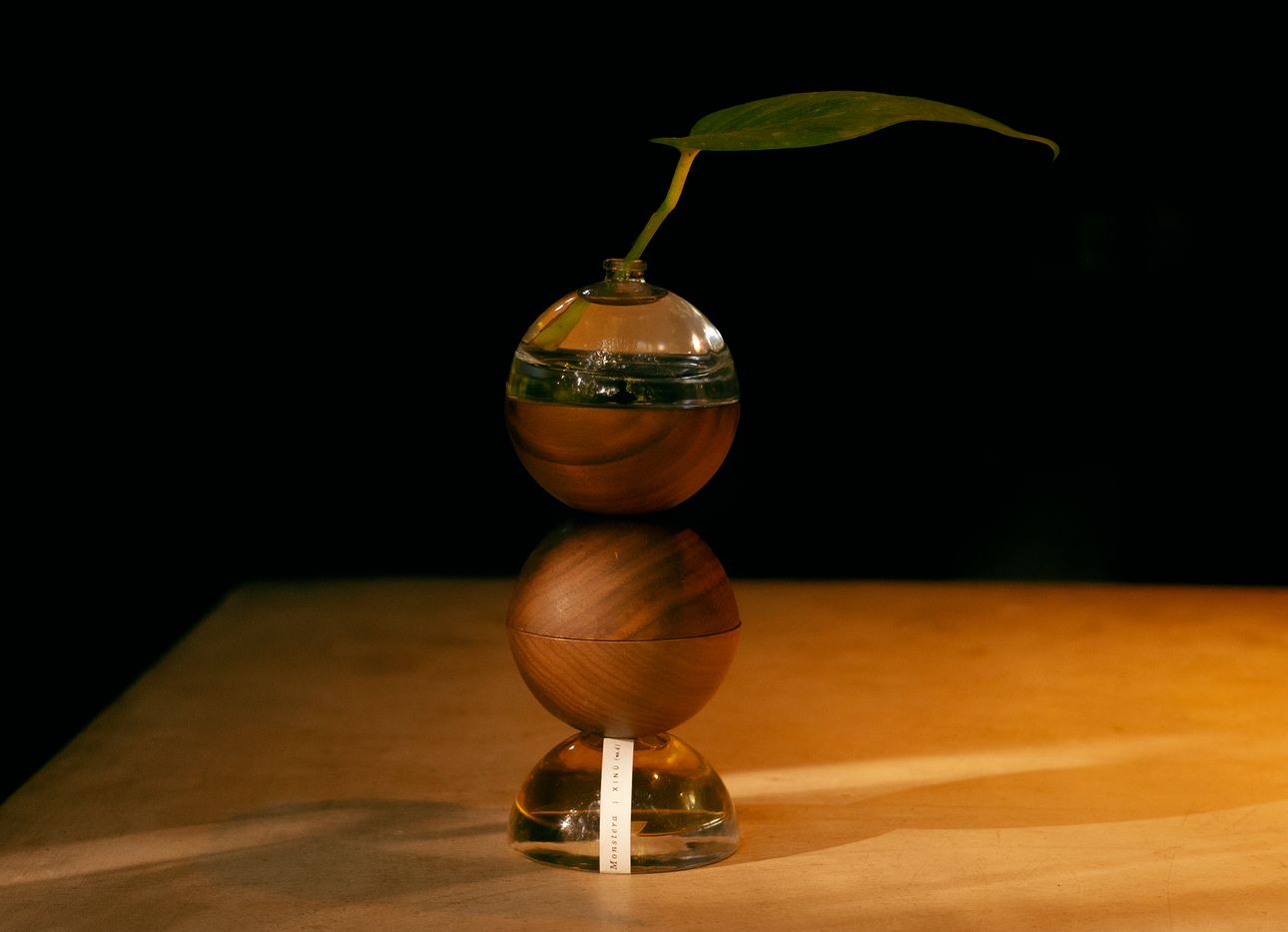
This Mexican Fragrance Brand Borrows Its Notes From Local Vegetation
“Scent and architecture both take people on sensory journeys,” says architect Héctor Esrawe. “More and more, I believe in curating three-hundred-and-sixty-degree experiences—ones that link the built [environment] with the olfactory.” Esrawe’s multitrack career creates the means to do exactly that: In addition to running his Mexico City–based design practice, Esrawe Studio, he oversees Xinú (pronounced “she-new”), a perfumery he co-founded in 2016 with architect Ignacio Cadena and his wife, Verónica Peña. The firm is named after the word for nose in Otomi, an indigenous Mexican language, and has since developed five unisex scents with Mexican perfumer Rodrigo Flores-Roux (the mind behind Clinique’s Happy fragrance) as well as evocative candles, incense, soap, and hand cream.
Last year, shortly after Esrawe completed a residence in Mexico City set around a courtyard filled with local jungle plants, Slow’s co-founder Claus Sendlinger reached out. “We need to know each other,” he wrote. At the time, Xinú operated three shops in Mexico—each centered around an oversized, visually stimulating table, chockablock with plants, naturalist sketches, scientific implements, and other scent-oriented curiosities—and its co-founders were looking for a space in Tulum. “Claus approaches every project in a contextual way. His respect for nature felt instantly familiar,” says Esrawe of their initial, virtual conversations. A visit to Slow’s Tulum Treehouse, a guesthouse and kitchen aimed at preserving and evolving Mexican craft traditions, convinced Esrawe that he’d found a like-minded collaborator. In March, Xinú opened its fourth location inside the building.
From its open-air point of sale on the retreat’s leafy grounds, Xinú offers its veritable fragrances as a celebration of the continent’s diverse vegetation. Guests can enjoy a mist of mezcal-themed Aguamadera, created with notes of agave and lime; or Ummo, a deep, warm tribute to tobacco. There’s also Oronardo, an homage to the sweet-smelling Mexican tuberose; the lush, creamy Monstera, informed by the leaves and fruit of the native plant; and Copāla, made from Mexican vanilla beans and copal resin. For Esrawe, the latter combination, used in ancient Mayan culture as incense and to heal wounds, evokes the strongest connection to the Treehouse, Slow’s first hospitality project in the Americas. In the coming months, he’ll expand Xinú’s botanical encounters to span the guest experience—from cocktail and food menus to toiletries, skin care, and bathing products—to form a holistic fusion of scent and place. “We want to showcase what’s possible in Mexico,” Esrawe says, “and create a multisensory narrative from the roots up.”